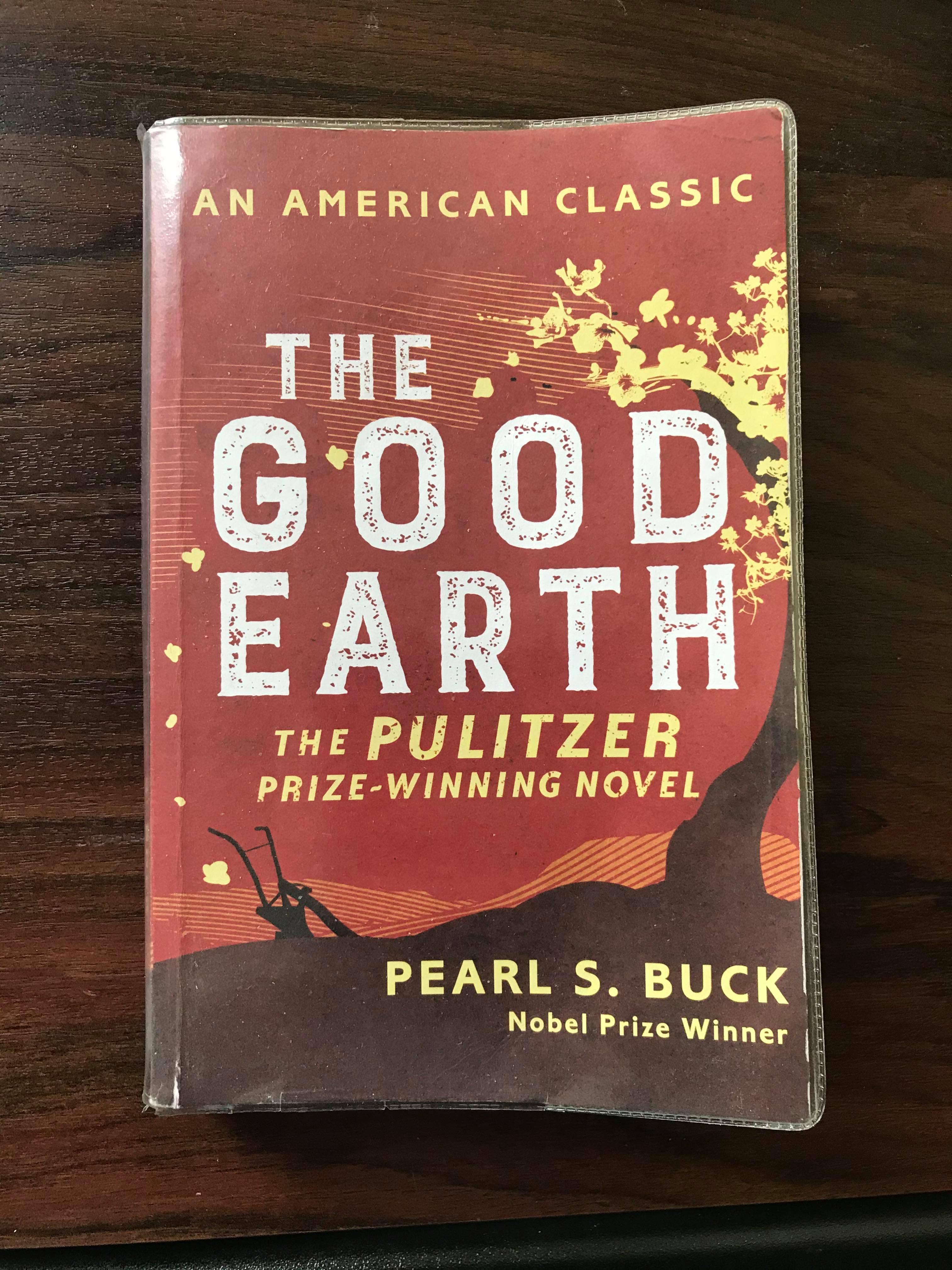By Sean Harris, Long-term Private School Teacher 2020
Private School Teacher Sean has been preparing for his teaching placement by taking advantage of some of the many great Chinese novels. In this post, we’re switching things up and taking a look at his impressions of one of his most recent reads. So, without further ado here is Sean’s review of The Good Earth, by Pearl Buck.
As preparation for moving to China, I’ve been reading some Chinese literature.
I’m a big reader anyway, but I was getting bored of watching videos and reading factual history books and travel guides. So, I thought I would start reading some Chinese novels and short stories instead.
Why read Chinese literature?
Novels and short stories can be just as informative as factual sources. A writer of quality must write accurately about people and events, and that’s why ancient novels and short stories are a very valuable resource for historians.
If you’re interested in the history of China like I am, reading a Chinese novel can be a fun and entertaining way to learn more about it.
I’m also keen to prepare myself for the potential culture shock in China. It’s very important as a teacher and ambassador in China that you always stay tolerant and open minded. Reading literature can help you do this, I’ve found.
To read a story and follow a character’s journey through hardships – that is the very act of putting yourself in someone else’s shoes and feeling what they feel. Studies show that this helps activate the areas of your brain responsible for better understanding of others, along with better understanding of new situations and surroundings as well.
The review
Here’s my review of a Chinese novel I read recently; The Good Earth, Pearl Buck
This novel was published by American Chinese writer Pearl Buck in 1931. It was the best-selling book in 1931 and 1932 in America and won the Pulitzer Prize in 1932, which is pretty much the most prestigious award out there for a novel. The only thing more prestigious is the Nobel Prize for Literature – which Buck did actually go on to win in 1938, mostly on the accolades she received for The Good Earth.
What’s it about?
Wang Lung is the son of a poor Chinese farmer in a small town. He marries a slave woman, O-Lan, and starts a family.
Through Wang Lang’s frugalness and hard work, he saves enough to start buying up more farming land and slowly his fortunes rise. This, along with the fortuitous discovery of silver and jewels in the mass raid of a great house, makes Wang Lung a very rich and prosperous man.
The wealth is corrupting, however. With no need to work anymore, Wang Lung becomes idle and takes a concubine into his house. He casts aside his devoted wife, for she is too coarse and ugly for him now. His lifestyle becomes more and more lavish, until he buys the large former house of a great family and secures his position of a man of position and power in the town.
My thoughts
- It was excellent
- I was drawn in instantly and kept interested until the end
- Very easy to read, the style of the writing flows well in most places. It’s sort of terse and tight and yet with long sentences as well
- Every character was believable and interesting; I thought O-Lan’s life in particular was heart-breaking
- Reflecting on it, I feel the trip to the southern city during the famine was slightly incongruous. The whole narrative seemed to be about the town, and yet you have this strange small section taking place far away from it. I actually found the trip very exciting, but I just wonder if more could be made of it. I wonder if the novel should actually be about them in the big city and their struggle to get back to the land, and the ending of the novel should be when they return. For example, Wang-Lung is dreaming of the land every day when he is away, and it seems like his sole driving force is to return to it. Yet, considering the length of the book, it happens quite quickly, and not much fanfare is even made when he does return to the land—which I found strange because his love for the land is profound and almost literally the entire theme of the novel
- The ending seems somewhat abrupt. I feel maybe Wang Lung should die to round it off, as he’s very old near the end. The actual ending, although it is a nice image, is not very theatrical or dramatic (maybe that’s just my own style preference). But I’ve just found out this book is the first of a trilogy, so maybe that explains it. It’s a good ending in any case
I’m inspired
Reading The Good Earth has inspired me in particular to seek out the more rural aspects of China, seeing as the novel is so centered around farming and small town life. I want to see the sort of farmland described so vividly in the writing and, if not a thing of the past, the types of humble housing that the farmers live in as well.
I’m also keen to learn more about the traditions of China, after seeing such things in the novel like when Wang Lung sticks little red paper squares to all his farming utensils in the hope that it brings good luck in the form of a rich harvest. What is the significance of the red squares in Chinese culture? I’m eager to found out.
Get reading
Here are some other examples of great Chinese literature to get you started:
- Half a Lifelong Romance, Eileen Chang
- Binu and The Great Wall, Su Tong
- Red Sorghum, Mo Yan
- The Dark Road, Ma Jian


Leave A Comment
You must be logged in to post a comment.